Background
Planned parenthood refers to the development of health care services to help individuals in the society to have children only when they are ready.
This implies that the initiative is meant to facilitate some controversial health care services such as abortion and various alternatives such as contraceptives to prevent pregnancy (Lawrence, 2017).
Various agencies have taken the initiative to facilitate planned parenthood services such as educating youth and facilitating various options to prevent pregnancy (Woo, Alamgir, & Potter, 2015).
This initiative is quite controversial because it extends the debate on the morality of abortion (Rasmussen, 2015).
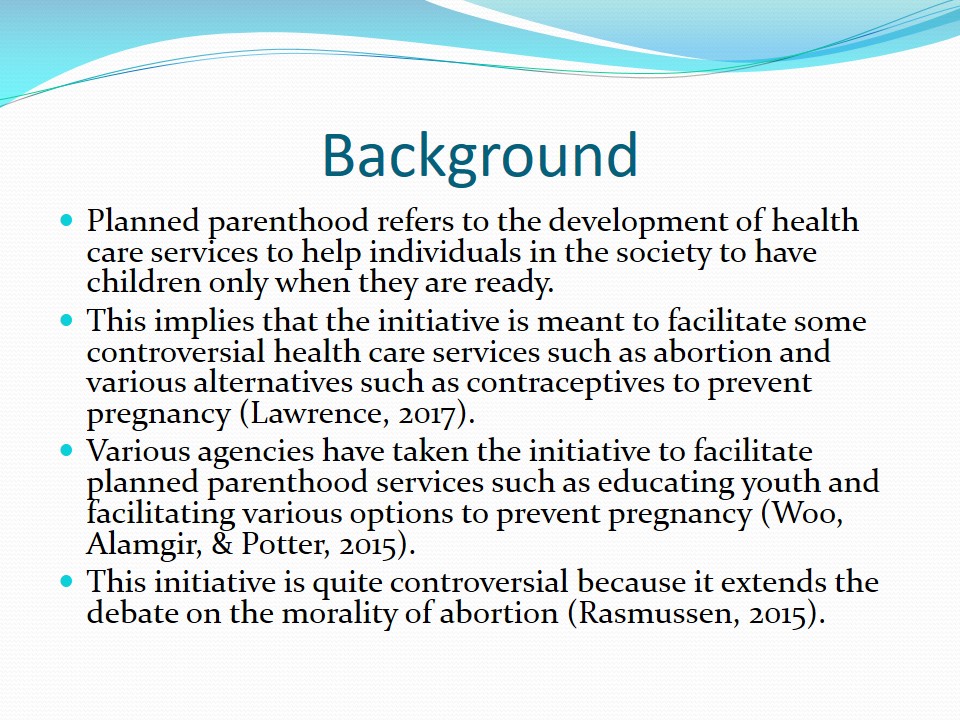
Current Position
I believe that planned parenthood is a good initiative if it only facilitates preventive health care services to ensure youth do not become parents before they are ready for the responsibilities.
I support the use of various forms of contraceptives to ensure that unwanted children are not brought into the world to suffer (Rosenbaum, 2017).
However, I do not support the provision of abortion services to youth because of the moral convictions aligned with my spiritual beliefs.
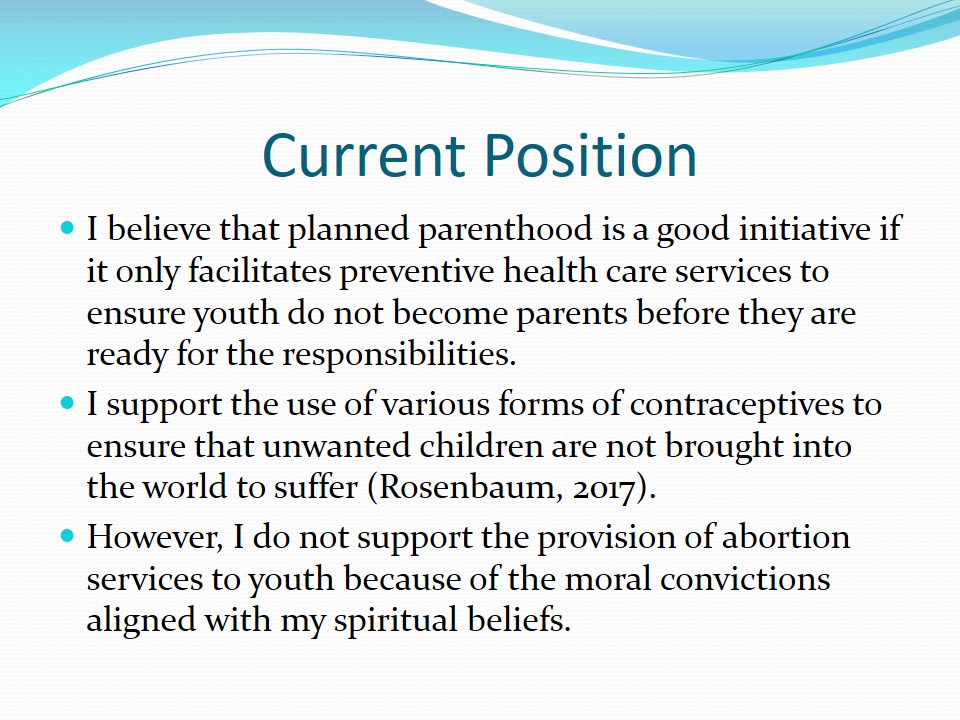
Projections of Evolution
The planned parenthood initiative will continue being controversial, especially as the associated agencies have been targeting schools to introduce sex education.
Sex education and the provision of contraceptive options such as condoms and birth control medication to children is an indirect move toward encouraging them to have sex.
Parents will continue with the debate on whether to allow agencies to introduce sex education in schools.
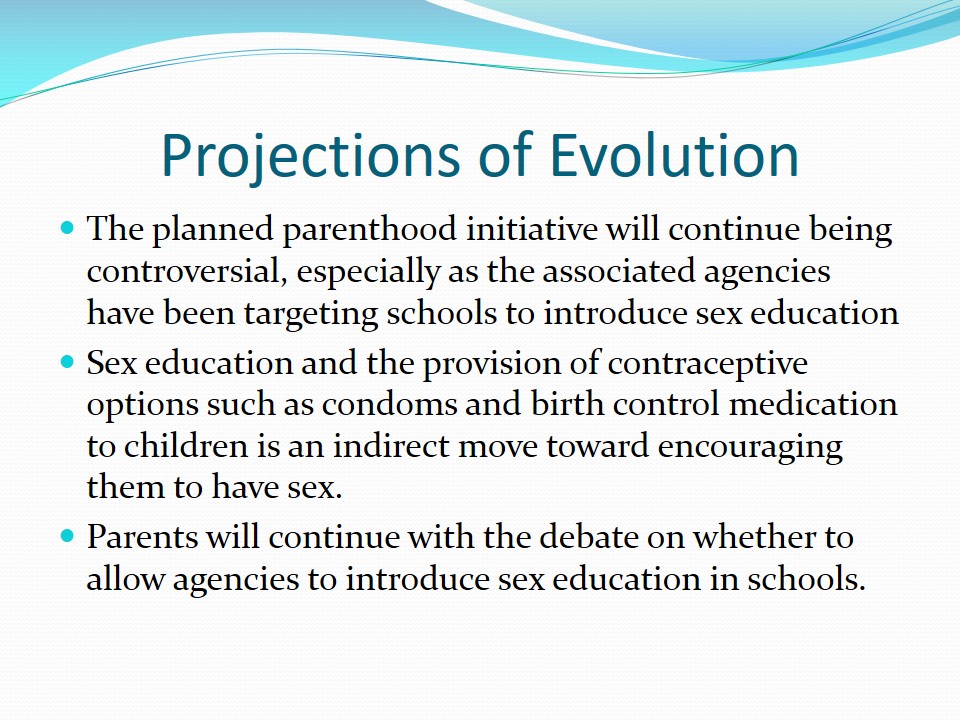
Impact on Health Care providers
Health care providers will continue bearing higher levels of emotional burden when forced by policies to facilitate services that they do not believe are moral.
Many health care providers will have to take a stance on the issue and it will be difficult to deal with patients who have a different perspective on the issue.
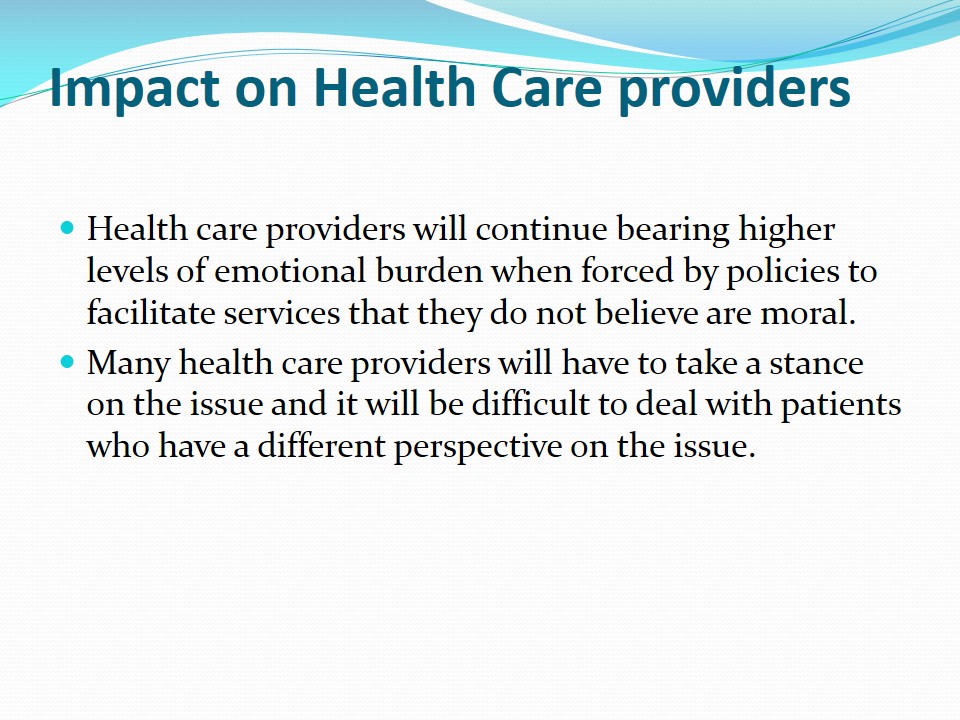
Personal Development
Ethical guidelines must be updated to guide health care providers in dealing with patients who require services such as abortion.
Supervisors in health care facilities must consider the professional skills and knowledge that must be facilitated to enhance the competence level of health care providers.
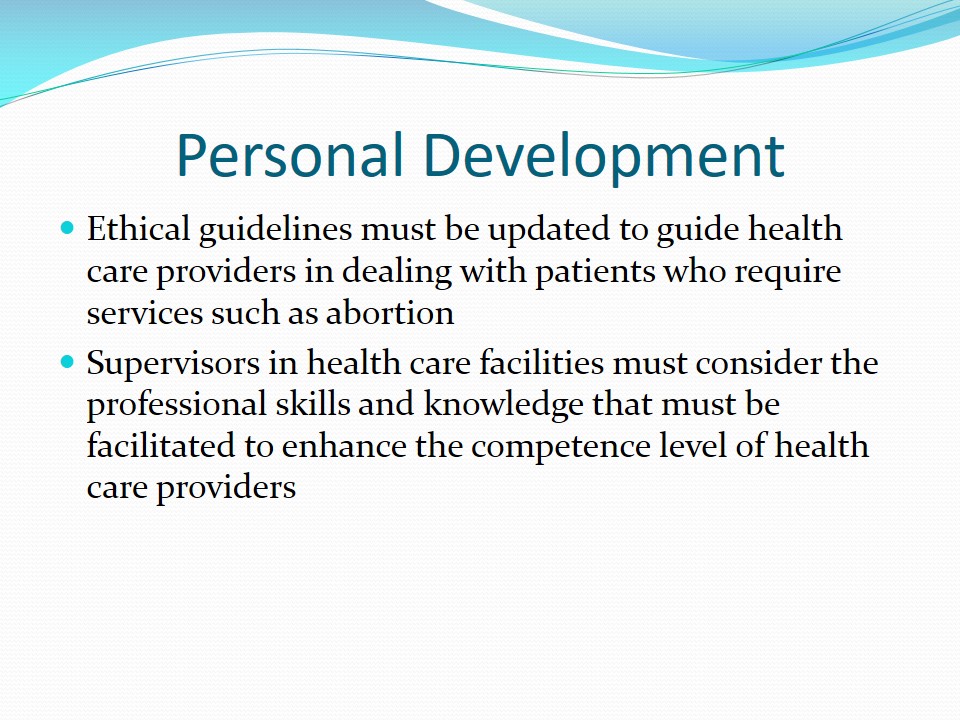
Possible Training
- Training in handling the abortion process.
- Training in counseling patients and giving them moral support.
- Training in facilitating spiritual growth to patients without allowing their personal beliefs to influence the process.
- Training in monitoring patients after undergoing the procedure.
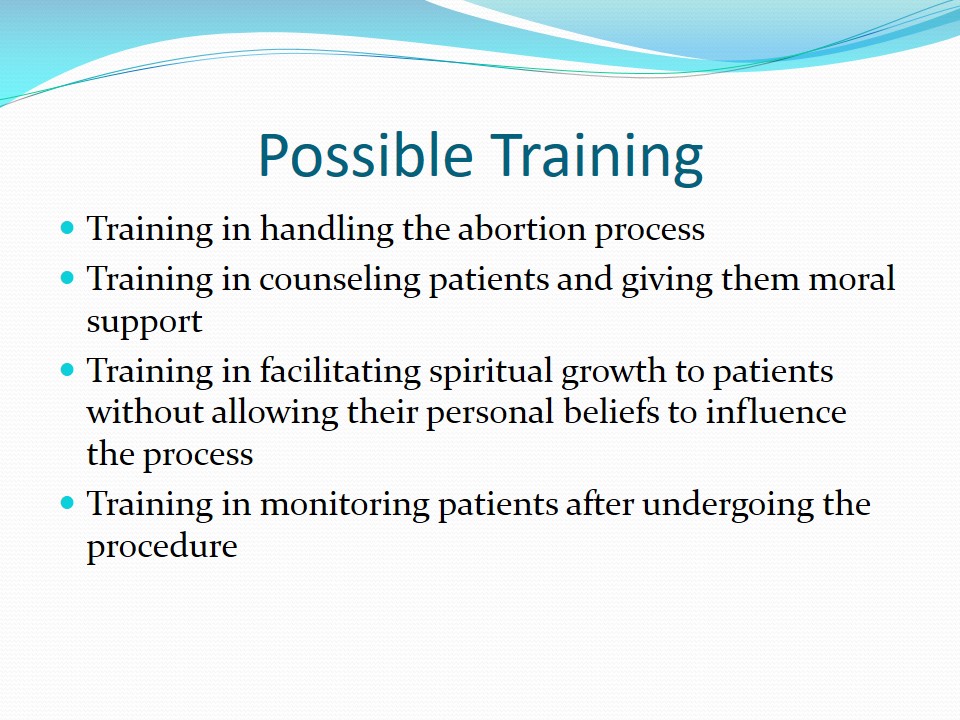
Changes in Hospital Ethics Committee
Hospital Ethics Committee should be compelled to assume ethics that advocate for the protection of life.
This implies that they should align moral considerations with the need for health care providers to advise teenagers not to have abortions.
However, health care providers should still be compelled to follow the requirements of the patient if they are mature enough to make such decisions.
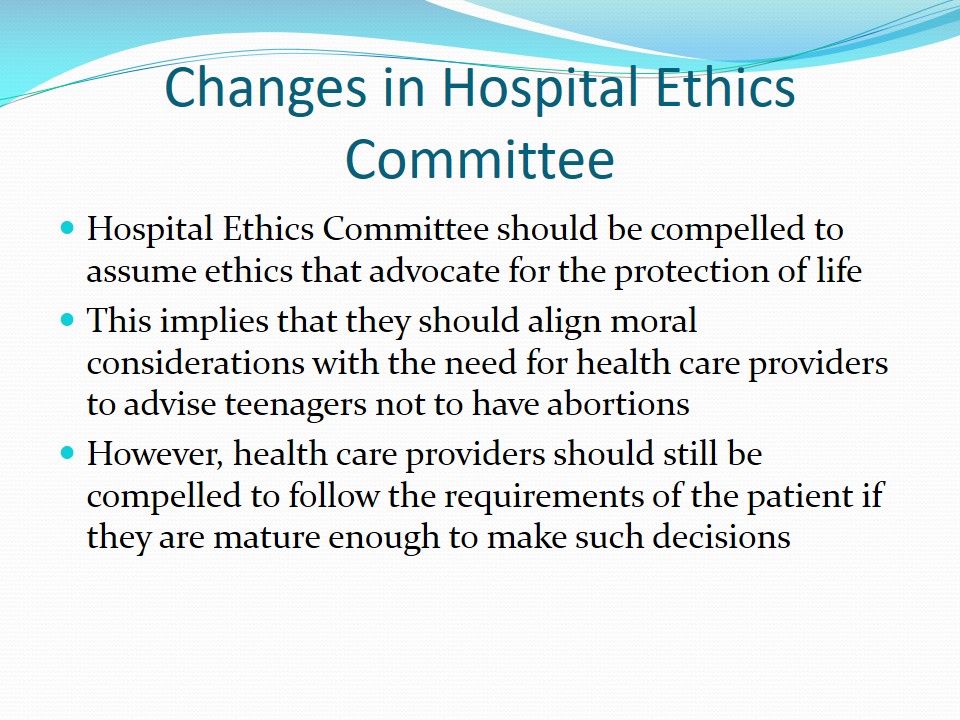
Ethical Theory in Decision-Making
The cognitive continuum theory should guide the decision-making process (Custer, 2013).
The theory calls for the application of rational through intuitive reasoning and conscious analysis of various situations (Custer, 2013).
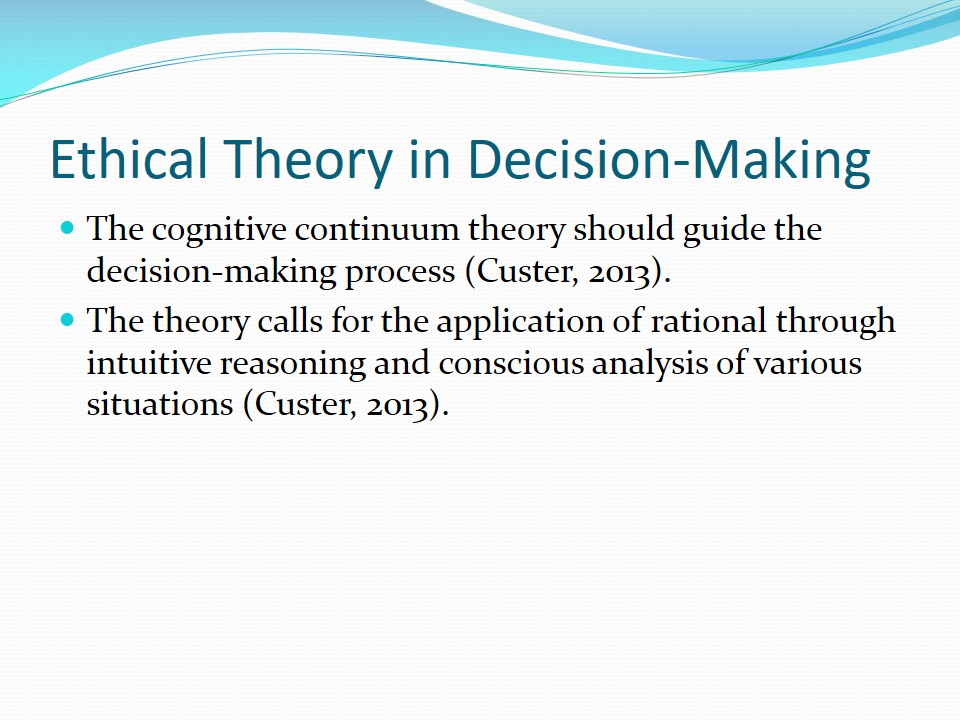
Current Policies
- Current policies at the federal level advocate for planned parenthood.
- Abortion is legal in the society.
- State authorities have the freedom to apply limiting policies.
- The required changes should include making abortion illegal.
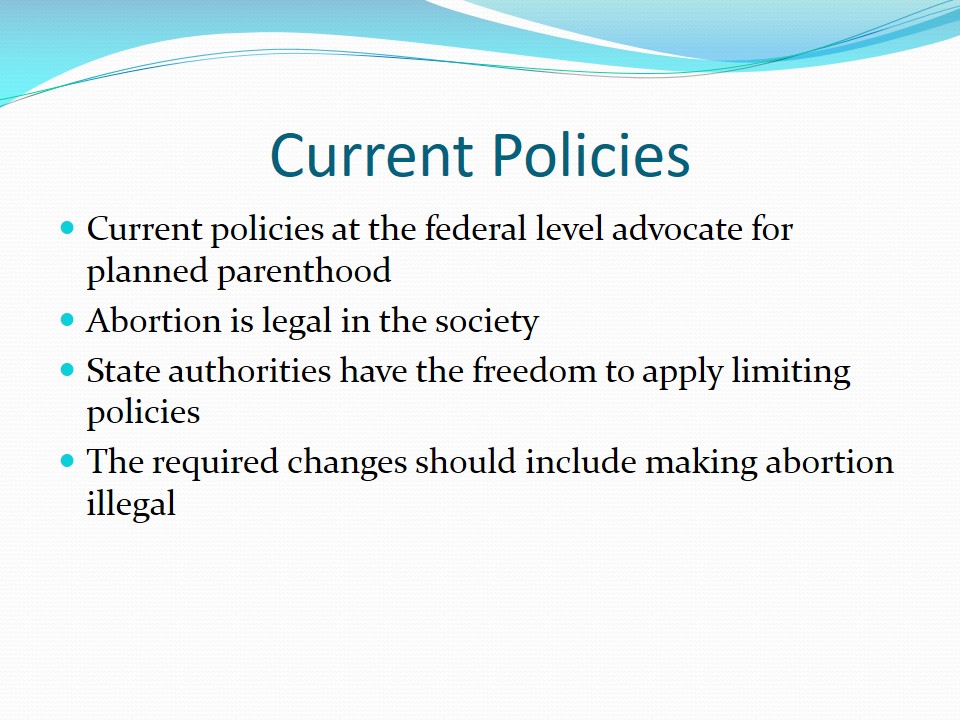
Health Care Reforms
The health care system must be actively involved in the development of mechanism to enhance sex education among the youth.
The planned parenthood initiative is necessitated by the lack of knowledge among teenagers in the society.
Preventive approaches will eliminate the prevailing controversy on planned parenthood.
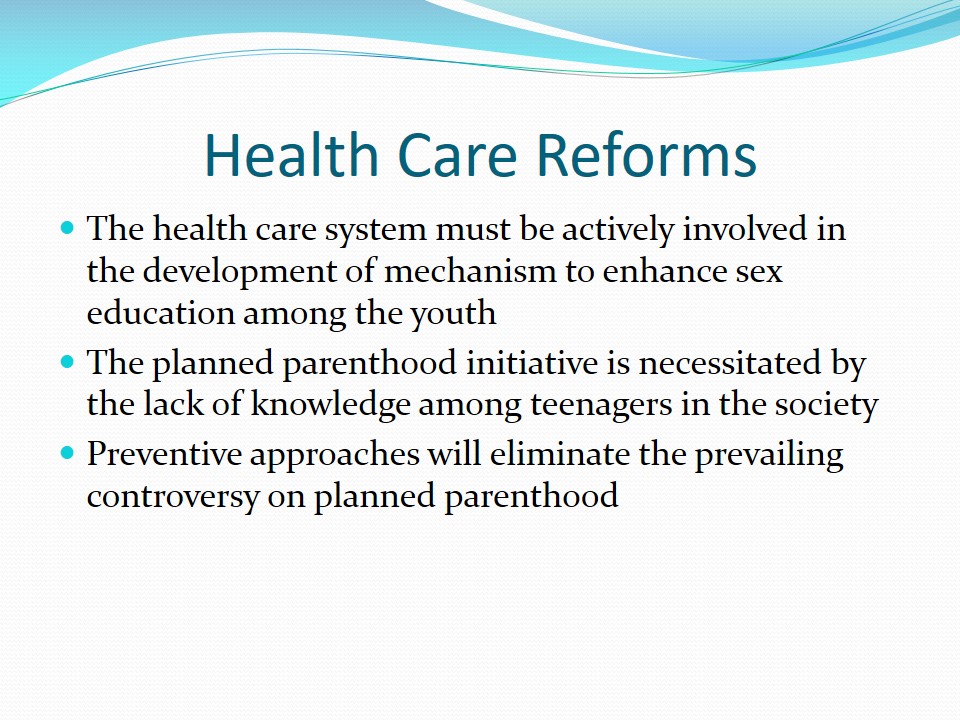
References
Custers, E. J. (2013). Medical education and cognitive continuum theory: an alternative perspective on medical problem solving and clinical reasoning. Academic Medicine, 88(8), 1074-1080.
Lawrence, H. C., & Ness, D. L. (2017). Planned Parenthood Provides Essential Services That Improve Women’s HealthPlanned Parenthood Provides Essential Services That Improve Women’s Health. Annals of Internal Medicine, 166(6), 443-444.
Rasmussen, L. (2015). Planned Parenthood takes on Live Action: An analysis of media interplay and image restoration strategies in strategic conflict management. Public Relations Review, 41(3), 354-356.
Rosenbaum, L. (2017). Understanding the Planned Parenthood Divide—Albert Lasker and Women’s Health. New England Journal of Medicine.
Woo, J., Alamgir, H., & Potter, J. E. (2015). Removing Planned Parenthood from a family planning program in Texas: effects on injectable contraceptive users. Contraception, 92(4), 374.